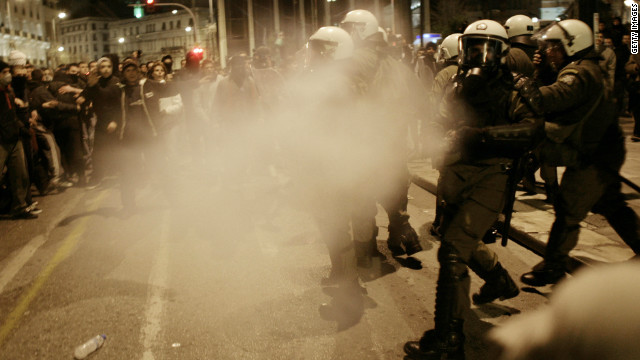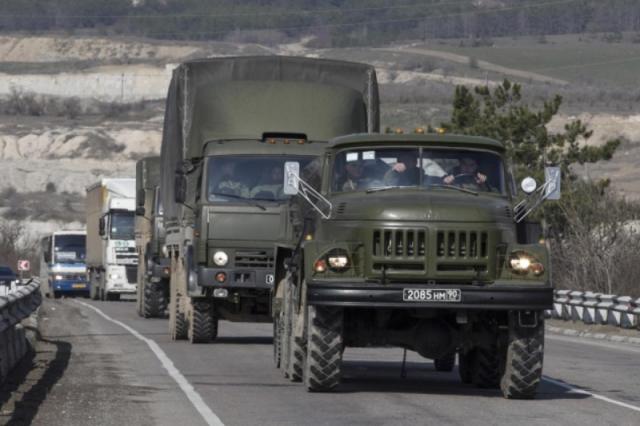Photos: Human rights watch, New York Times, CNN and Andrey Vladov's personal archive
Andrey Vladov is a journalist at the BBC. He was deputy editor of the Bulgarian section, and since 2007, he has worked in the English departments of the corporation. His journalistic career began in the  Bulgarian National Radio, where he presented the morning news on Horizon radio station. Since 1992 he has lived in the UK. He graduated in "International Relations" at the University of National and World Economy. He hosts a broadcast for alternative music on the Bulgarian Tangra Mega Rock radio station too. Andrey Vladov talks with Maria S. Topalova.
Bulgarian National Radio, where he presented the morning news on Horizon radio station. Since 1992 he has lived in the UK. He graduated in "International Relations" at the University of National and World Economy. He hosts a broadcast for alternative music on the Bulgarian Tangra Mega Rock radio station too. Andrey Vladov talks with Maria S. Topalova.
In May there will be elections for the European Parliament, the first ones since the beginning of the crisis that began as an economic one but proved to be a crisis of values in the European Union. What do you expect from these elections?
Not only the economic crisis but also the increase in the number of refugees from conflict areas such as Syria has made the nationalist and anti-immigrant parties in Europe much more popular. In May, they will probably obtain a lot more seats in the European Parliament. Although the nationalists are unlikely to be the dominant political force in terms of number of members, there is no doubt that their influence will be more than palpable. Major parties in Europe, whether in government or in opposition, are even now forced to comply with them. The fears that they are losing voters who already support anti-European organizations such as the United Kingdom Independence Party (UKIP), for example, is the reason for them to harden their positions with respect to immigration and access to social benefits. If the new European Parliament is more "nationalistic" than "pan-European" this could prevent the further enlargement of the European Union and strengthen the centrifugal tendencies within the organization.
Usually, the activity in the European elections is low. Do you expect it to remain the same this year too? Is there still a chance for the European institutions, including the Parliament to regain the empathy of citizens?
The dissatisfaction with the economic measures to tackle the crisis and with corruption among the governments of countries such as Bulgaria, Romania and Greece may drive more people to vote in May. However, I do not expect that the activity in the elections in Europe will significantly increase. As for the trust in the European institutions, it has always been traditionally low in Western Europe, but I think it is still high in the new member states. In countries such as Bulgaria where corruption is part of the everyday life of the people, the judicial system does not work well and the media are largely controlled, Brussels is perceived as the only corrective, the only force that can intimidate those who have become presumptuous in terms of power.
Britain is known for its Euroscepticism. Is it still dominating the political debate in the country? What are the moods in society?
The Eurozone crisis has undoubtedly strengthened the positions of Eurosceptics both in the ruling Conservative Party and in British society as a whole. Because of the strong Euroscepticism and the anti-immigrant attitudes in Britain, Prime Minister David Cameron now calls for the European Union to limit some fundamental principles of the organization such as the free movement of people. In December 2011, he vetoed an agreement between the member states with which they tried to overcome the crisis through new rules for national budgets. The Conservatives promise a referendum on leaving the European Union, if they come to power in 2015. The Eurosceptic UKIP party, according to some polls, is even the third political force in the country. However, Euroscepticism is facing strong resistance from both the opposition Labour Party, which is currently leading in the polls, and the coalition partners of the Conservatives, the pro-European Liberal Democratic Party. A poll conducted in March showed that the Britons who support the European Union outnumber those who are against it, albeit slightly. 41% of respondents state they would like the UK to remain in the European Union whereas 39% say they would prefer their country to leave the organization.

In Greece, one of the consequences of the crisis is political polarization and within its context, all polls indicate an extreme left party such as SYRIZA as the first political party in the next elections and a clearly Nazi party such as Golden Dawn firmly occupies the third position. Is there polarization in British political life and if so, how would you explain it? However, the Eurozone crisis has not affected the country.
The global financial crisis has hit Britain although it is outside the Eurozone. The data of the British Institute of Statistics show that in 2013, the country was not yet able to recover and its productivity was three percentage points lower than in 2008. Unemployment has begun to fall, but 7.2% of the economically active population is still unemployed and the property market began to slightly recover only in the last year. The fear that "foreigners will come to take our jobs," explains not only the good positions of UKIP. It was at the heart of the anti-Bulgarian and anti-Romanian campaign in the yellow media a few months ago, which rose the alarm that the island would be overrun by immigrants. In Britain, however, extremist parties like Golden Dawn are not part of the political mainstream and there is a strong public intolerance to them. The far-right British National Party was able to win only two seats in the municipal elections in England last year.

Having referred to the UK, this year Scotland will hold a referendum on independence. What future do you forecast for an independent Scotland, in political and economic terms? Will such a country be created in general?
The political and economic future of an independent Scotland would be very difficult. Brussels said that if Scotland voted for independence on 18 September, it would no longer be part of the European Union and would have to reapply to join the organization. The main parties inside the UK, namely the Conservative, Labour and Liberal Democrats, pointed out that if one of them came to power in 2015, it would not allow Edinburgh to keep the pound sterling as its national currency. The British Treasury too supported their opinion. It argued that a monetary union with Edinburgh would pose the risk for the British taxpayers to be forced to pay for the support of the Scottish financial system if it were in crisis. The economy of Scotland is an integral part of the rest of the UK and experts warn that Edinburgh cannot rely on dwindling oil from the North Sea alone. However, the arguments for preserving the integrity of the UK are not only economic. There is also a cultural and social point for Scotland remaining part of one country, along with England, Wales and Northern Ireland. This is about shared values, generations grown from mixed marriages, a common political system in which people born in Scotland occupy senior positions in both major British parties and in the government. Former British Prime Minister Gordon Brown is a Scot. A poll in March showed that 46% of Scots would vote for remaining in the UK whereas 39% would support an independent Scotland.
Do you follow the political developments in Bulgaria? Do you think that after the disaffiliation of Georgi Parvanov and ABC the Socialist Party will fall apart? Is there a chance for the Oresharski cabinet falling and for new elections?
I follow with interest what is happening in Bulgaria, especially the awakening of civil society, starting with the environmental protests against the attempts to destroy nature in Bulgaria and continuing with the mass anti-government demonstrations in Sofia last year. I do not think that the disaffiliation of Georgi Parvanov from the Socialist Party will lead to its disintegration. The Bulgarian Socialist Party (BSP) has a very conservative electorate that always follows those, on Positano Street, who hold the power. However, because of his personal popularity among the supporters of the red party and his openly pro-Russian position, which would also appeal to many of BSP voters, there is a chance for Parvanov weakening the dominance of the Socialists in the left political space. ABC will probably attract those members of the century-old party who disagreed with the fact that their leader Sergey Stanishev was among the main supporters of a publicly compromised person such as Delian Peevski. The mass protests that followed the attempt to appoint him head of the State Agency for National Security (SANS) did not lead to the resignation of the Oresharski cabinet. They have however managed to undermine the feeling of the government that it is untouchable and forced it to change some of its decisions, which is not insignificant. The problem with the fall of the government is rather rooted in the lack of a clear alternative on the part of the opposition parties.
What is your attitude towards the idea of a referendum on the law on elections? Do you support the idea of e-voting? Do you think that it would involve the Bulgarian Diaspora throughout the world in the political problems of Bulgaria?
The referendum is the only way to find out the preference of the citizens in terms of the system of elections. Moreover, it was one of the main demands of the protests against the political class in Bulgaria. The e-voting would definitely involve a larger number of the Bulgarians living abroad in the processes that take place in the country. Currently, they have serious difficulties in participating in the elections because sometimes they have to travel thousands of miles to vote in the Bulgarian representations in the relevant country.
How do you see the future of the European Union? What is the idea which will re-unite Europeans?
The European Union is facing major challenges. The economic and political differences between the old and new member states are persistent. The global financial crisis has deepened this process. Richer countries can no longer help their poorer partners without reservations and it is increasingly difficult for them to convince their own citizens as to the need for "wasting" money outside the country. Unfortunately, at present, there is no idea that can unite Europeans.

Do you think the European Union has an adequate strategy and policy to effectively respond to the conflict in Ukraine?
Russia's actions, which resorted to the deployment of troops to stop the integration of Ukraine into Europe, led to the announcement of sanctions, primarily affecting individuals from the environment of Russian President Vladimir Putin rather than the Russian state. Unlike the Cold War when the Soviet economic system was developing independently of the western, now Russia is part of the global economy. Europe is too dependent on Russian energy and the concerns that severe sanctions against Moscow would lead to a new global financial turmoil do not allow the West and Europe to take measures that are more serious. Moscow's attempts to restore its influence upon the eastern part of the continent have not yet acted as a unifying "external threat" to the European Union. They are however some of the biggest challenges to Brussels. The organization has yet to develop a unified strategy for the "taming" of Russia and for an effective economic cooperation that will not be so dependent on the political interests of the Kremlin.